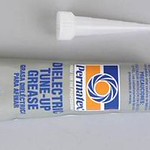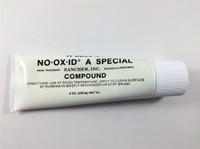You are using an out of date browser. It may not display this or other websites correctly.
You should upgrade or use an alternative browser.
You should upgrade or use an alternative browser.
GC 2300 Wont Start (need to by pass the safety switch to test)
- Thread starter Bedrock2300
- Start date
/ GC 2300 Wont Start (need to by pass the safety switch to test)
#21
Chem_E
New member
Similar problem today with my GC2300 which also has about 700 hours though not sure what year. Exactly the same symptoms as the original post here, though my battery was only 12.7v when checked with the meter.
Tried to jumper from the positive battery post to the positive terminal on the solenoid, but no result. Tapped on the solenoid a couple times with my pliers and it started immediately.
The next time I stopped to get off, I left the tractor running, though in neutral and with the PTO disengaged. As soon as I stood up, the tractor shutdown. After some fiddling I've determined that the PTO lever or the switch for the PTO is off kilter somewhat. A few times I had to hold tension on the PTO lever in the disengage position to get it to start. A couple times I did not. The lever doesn't seem to be coming back as far as it normally does, so when time allows I'll blow out the lever linkage and switch with the air compressor. It's been rather dry & dusty the last two months here.
I might not also have a starter solenoid going bad.
Thanks to all for the advice! It was a big help and I was only out of service for about 30-40 minutes.
Tried to jumper from the positive battery post to the positive terminal on the solenoid, but no result. Tapped on the solenoid a couple times with my pliers and it started immediately.
The next time I stopped to get off, I left the tractor running, though in neutral and with the PTO disengaged. As soon as I stood up, the tractor shutdown. After some fiddling I've determined that the PTO lever or the switch for the PTO is off kilter somewhat. A few times I had to hold tension on the PTO lever in the disengage position to get it to start. A couple times I did not. The lever doesn't seem to be coming back as far as it normally does, so when time allows I'll blow out the lever linkage and switch with the air compressor. It's been rather dry & dusty the last two months here.
I might not also have a starter solenoid going bad.
Thanks to all for the advice! It was a big help and I was only out of service for about 30-40 minutes.
Clutch safety switch by-pass question
I made a permanent by-pass for my clutch safety switch & installed it so I could start the tractor ( Jinma 254 ) without having the clutch depressed. It worked great while I was trouble shooting my starter problem.
However now that starter problem has been fixed, with the by-pass still installed and the tractor idling I depress the clutch and slide it into gear and the tractor immediately jumps forward . The by-pass shouldn't have any effect on the clutch disengagement should it ??? Any suggestions will be appreciated .
I made a permanent by-pass for my clutch safety switch & installed it so I could start the tractor ( Jinma 254 ) without having the clutch depressed. It worked great while I was trouble shooting my starter problem.
However now that starter problem has been fixed, with the by-pass still installed and the tractor idling I depress the clutch and slide it into gear and the tractor immediately jumps forward . The by-pass shouldn't have any effect on the clutch disengagement should it ??? Any suggestions will be appreciated .
WranglerX
Elite Member
If pulling a fuse and replacing it solved problem, you probably have corrosion issues on fuse body (prongs) or in socket.....
Usually pulling and replacing fuse will scrape corrosion off fuse/prongs in fuse holder.... Suggest you clean up fuses and fuse holders and put very thing coat of dielectric grease on fuse prongs before inserting for final time, it seals out oxygen and moisture there for preventing corrosion... Only negative is it will hold dust and dirt...

Yes you will argue dielectric grease is an insulator and you are correct BUT if you have solid mechanical connections it just seals moisture and oxygen out ....
It has solved or prevented so many problems for me it has become a religion for me to use it....
Also for battery terminals...

Super clean battery posts and terminals (with soda to neutralize any acids) polish with scotch bright (contact surfaces) and apply liberally to post and clamp (may need to warm a bit - hot air from hair drier or heat gun as it is pretty stiff), you will not have battery corrosion issues... I do all my vehicles and never have corrosion at battery post/cable issues... One truck actually when 8 years without problem till battery internally failed....
Dale
Usually pulling and replacing fuse will scrape corrosion off fuse/prongs in fuse holder.... Suggest you clean up fuses and fuse holders and put very thing coat of dielectric grease on fuse prongs before inserting for final time, it seals out oxygen and moisture there for preventing corrosion... Only negative is it will hold dust and dirt...

Yes you will argue dielectric grease is an insulator and you are correct BUT if you have solid mechanical connections it just seals moisture and oxygen out ....
It has solved or prevented so many problems for me it has become a religion for me to use it....
Also for battery terminals...

Super clean battery posts and terminals (with soda to neutralize any acids) polish with scotch bright (contact surfaces) and apply liberally to post and clamp (may need to warm a bit - hot air from hair drier or heat gun as it is pretty stiff), you will not have battery corrosion issues... I do all my vehicles and never have corrosion at battery post/cable issues... One truck actually when 8 years without problem till battery internally failed....
Dale